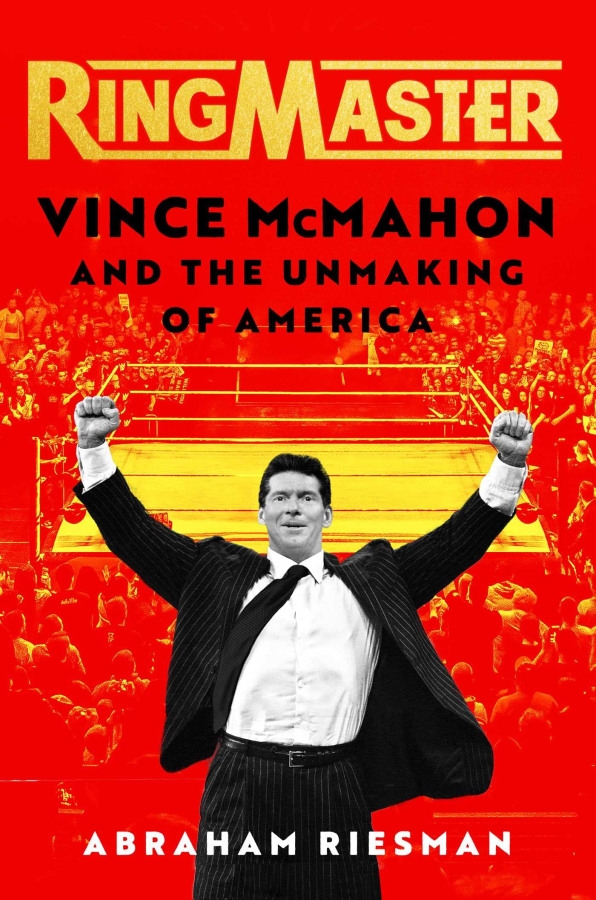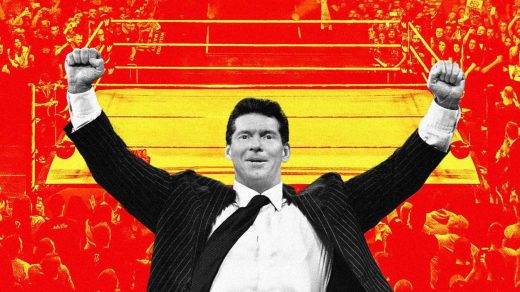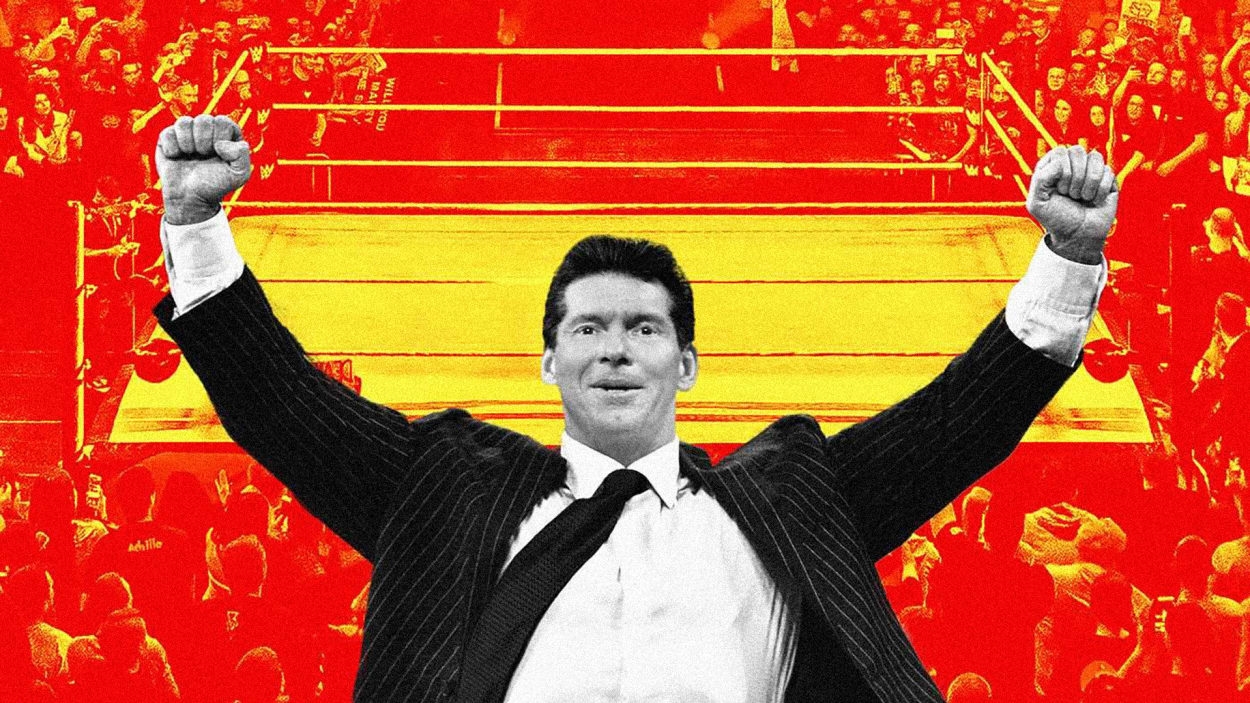How Vince McMahon upended the worlds of wrestling and business
By Daniel Dockery
In the world of professional wrestling, superstars and promotions have come and gone, but the lone constant over the past four decades has been Vince McMahon, owner and executive chairman of World Wrestling Entertainment.
Though a recent wave of alleged hush-money payments worth millions of dollars and a potential sale of WWE have tamped down McMahon’s strutting public persona, his legacy in the pseudo-sport on which he made his name remains. But his heyday—when he served the dual role of behind-the-scenes emperor of the then-WWF and a megalomaniacal onscreen villain for fans to jeer at—is the focus of Ringmaster: Vince McMahon and the Unmaking of America, the latest book from Abraham Josephine Riesman.

Fast Company spoke with Riesman and asked her a few questions about McMahon, the growth of his business empire, and why his public “heel” character Mr. McMahon was so integral to his success.
Fast Company: The early move that Vince McMahon is most known for is doing away with pro wrestling’s longstanding territory system. Promotions could make deals with other people and share stars but, for the most part, certain companies primarily controlled certain regions. And then Vince comes in and swallows the entire thing. How did he do it and what impact did that have?
Abraham Josephine Riesman: In the book, I call him a “rocket-powered steamroller,” and that was what he was in the mid-to-late ’80s. He’s on this war of conquest, like Manifest Destiny. And on a political level, it was an attempt to break up the smoke-filled back room of wrestling promoters. And he succeeded. The industry he was in would have changed anyway, because of cable television and global media expansion, and Vince has managed to exploit that better than anybody else. His peers were older than him and had a real attachment to the territory system. It was what they were used to, so they held onto it in a way that Vince didn’t. Vince really was a visionary in one respect—he saw that wrestling needed to be a TV product. And he then turned wrestling into a kind of MTV product—in many cases, a literal MTV product because they were partnering on events.
Vince allowed wrestling to stop being earnest. He started calling it “sports entertainment,” and people knew what that meant. And it’s not what it had been billed as for a century. He didn’t try to sell people on this being a real sport. He was selling it on the basis of “This is hip and weird and funny.” Vince was trying to get corporate America and the viewers of mainstream America to pay attention to him, and it fundamentally changes the relationship between audience and promoter and wrestler.
FC: WrestleMania is kind of the be-all, end-all for Vince’s vision of pro wrestling. It’s more than a wrestling event—it’s a cultural extravaganza. And in the first few years, there’s remarkably little quality wrestling in it, but it does gangbusters business. How does he create this event?
AJR: You can criticize Vince a lot, but he and his bookers and his wrestlers did unlock storytelling potential. They started telling these stories sequentially, like a television show. And they started having less and less wrestling. You go back and watch an episode of RAW from, say, 1999 and it’s two hours of people shit-talking or being in little skits or advancing some Byzantine plot, with a few wrestling matches. And I kind of think that’s beautiful. You watch it because even if you don’t like the matches, after a while, it’s totally intelligible if you just know about plots and soap operas and whatever. Vince and his collaborators were able to turn his brand of wrestling into entertainment.
I’ve been watching since 1999 and my favorite storyline of that entire year is the rivalry between Big Show and Big Boss Man, where Boss Man is just making fun and torturing Big Show for caring that his father is dying of cancer and then eventually dies of cancer. And he just mocks him for caring about grief [and ultimately crashes the funeral]. It’s just a rivalry that you’d never see treated in a straight way anywhere else and it’s deeply offensive without being offensive. The novelty alone is worth the price of admission.
FC: One comparison you make in your book a lot is between Vince and Donald Trump. Both have these larger-than-life public personas, and it’s something you see in quite a few modern big business owners. It didn’t all come from Vince, but what do you think it stems from?
AJR: It’s armor. I don’t know if that’s why he originally built the character of the terrible Mr. McMahon, but it’s his armor. You can’t penetrate the armor of that character with virtue or with a fact-check. It’s the genius of creating one of those personas: “I’m a jerk who gets things done.”
Who’s gonna stop you? “Oh, you lied to us. You did something immoral.” You can’t win a fight with someone who’s already admitted that they’re a jerk. If you were a big wrestling fan, you saw Vince win at life by making people hate him. He created this persona where even if you said, “Screw this guy!” he was saying, “Yeah, screw me. And buy my T-shirt to show me how much you hate me.” It’s genius.
It’s really hard to fight that paradox because you’re like, “Well, I want to show him that he’s bad. But he’s already shown the world that he’s bad. So, what do I do?” It’s hard to combat, and I can see why people like Elon Musk, or any number of people in industry take a similar playbook to Vince. I don’t know if people are necessarily consciously copying him, or if it’s just convergent evolution and the circumstances of modernity have made it such that if you want to succeed, this is just the conclusion you come to. The current rules say “Own it. Be a jerk. Say lies, say some truth, confuse people. And you can win in life.”

(17)



